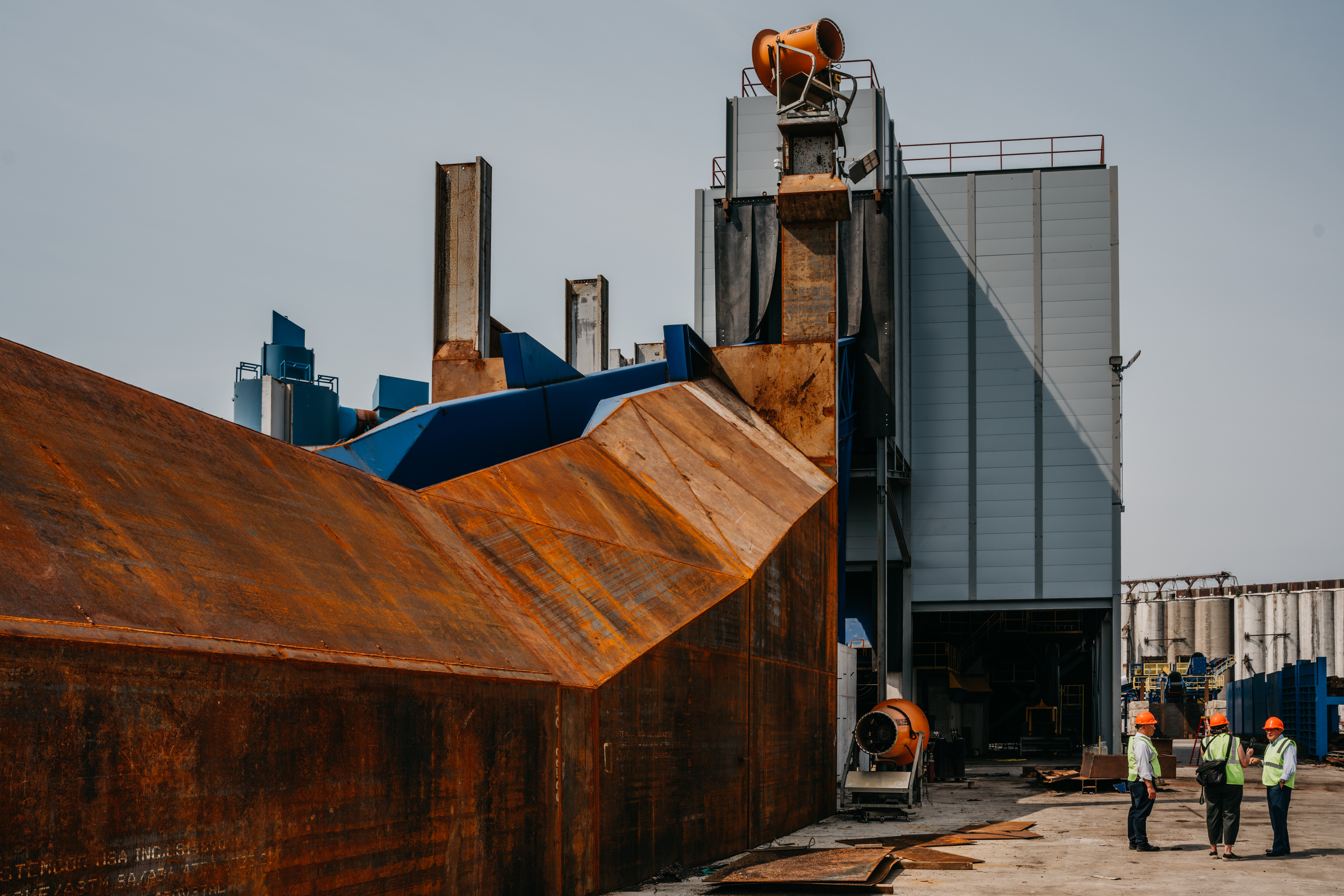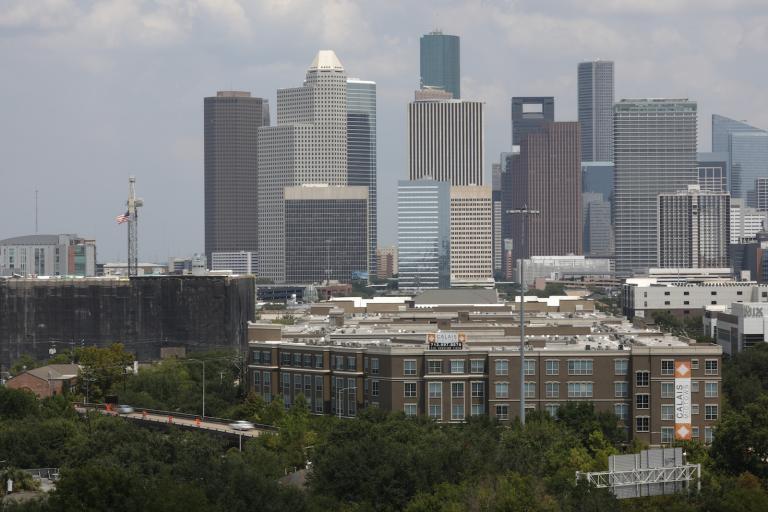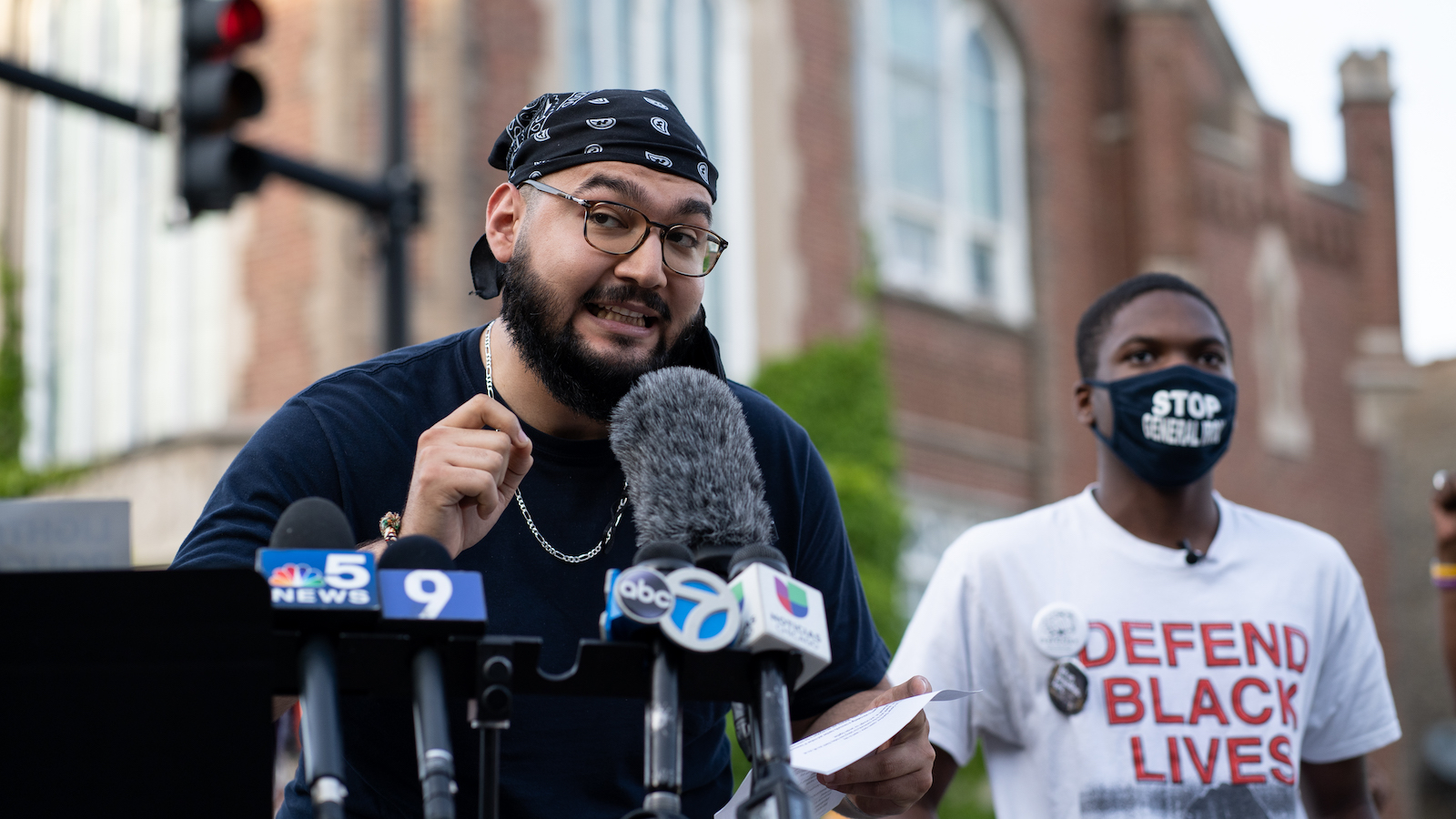A decision by the city of Chicago to relocate a scrapyard from an affluent white neighborhood to a majority-Black and Latino area has sparked years of public outcry, a hunger strike, national media attention, and multiple federal investigations. Now, one of those investigations has found that the city’s approval violated residents’ civil rights, representing a pattern of discrimination against a community already burdened with pollution and health issues, federal housing authorities said last week.
The finding stems from a nearly two-year probe by the U.S. Department of Housing and Urban Development, or HUD, into Chicago’s 2019 agreement to allow the General Iron metal recycling plant to operate in the city’s Southeast Side, an environmental justice community that contains dozens of other polluting facilities and where adult asthma rates are double the city average.
HUD threatened to withhold federal funding if local leaders continue violating the Fair Housing Act, which protects homeowners, renters, or people living in federally funded housing from discrimination on the basis of race or color, according to a letter to the city obtained by the Chicago Sun-Times.
“It feels good to know that what frontline communities have been experiencing in Chicago is now really well known,” Olga Bautista, executive director of the Southeast Environmental Task Force, one of the groups that filed a complaint with HUD, told Grist. “That gives us an opportunity to fix it, and to get the support that we need to make sure that we have policies in the city of Chicago that’s going to prevent something like [this] from ever happening again.”
City officials did not respond to a request for comment from Grist. But Cesar Rodriguez, a spokesperson for the office of Mayor Lori Lightfoot, denied accusations of discrimination, according to Block Club Chicago, a local news site.
“Any allegations that we have done something to compromise the health and safety of our Black and Brown communities are absolutely absurd,” Rodriguez told the publication.
For decades the General Iron metal shredder operated in the majority white Lincoln Park neighborhood, where residents complained about the smell and noise from tearing apart cars, appliances, and other types of scrap metal to be recycled. Under former Chicago Mayor Rahm Emanuel, according to the Sun-Times, the city pressured the company to relocate to make room for a multibillion-dollar private real estate development, the Lincoln Yards. The administration of Mayor Lori Lightfoot continued to support the relocation, signing an agreement in 2019 with a company that agreed to buy General Iron and move the scrapyard to the Southeast Side.

In response, the Southeast Environmental Task Force and two other community groups filed a complaint with HUD, alleging that the General Iron decision was just the latest flashpoint following decades of discriminatory policies that allowed polluting facilities to set up shop in Southeast Chicago. HUD opened an investigation into the General Iron deal in the fall of 2020; the following February, more than 100 residents participated in a hunger strike to pressure the city to reconsider its decision.
A year later, the city blocked the final permit the company, by then renamed Southside Recycling, needed to begin operating. Officials cited the “potential adverse changes in air quality and quality of life that would be caused by operations,” and argued the facility presented an “unacceptable risk” to surrounding communities. The company, though, is appealing the decision, and other projects are still moving forward that community members say pose a risk to their health — including a massive underground warehouse and industrial complex.
The U.S. Environmental Protection Agency is conducting a separate investigation into the state of Illinois’ decision to approve General Iron’s venture on the Southeast Side. The probe, which began in January of last year, focuses on allegations that the state EPA issued permits for the new scrapyard without sufficient input from the public, in an area where residential property is already contaminated by pollutants like oil byproducts, lead, and arsenic.
The HUD decision comes as the Biden administration puts a greater emphasis on addressing disparities in environmental policy, channeling federal resources toward frontline communities through the Justice40 initiative and creating a new Office for Environmental Justice. At the same time, it’s faced pushback from states where it’s attempted to enforce these priorities, and prospects for a federal environmental justice law seem dim.
HUD’s letter to the city urged officials to change their planning and zoning policies to avoid racial discrimination. Lightfoot’s administration has previously promised to work with elected leaders to pass local laws that protect frontline communities from pollution and to institute stricter environmental reviews around industrial operations.
But residents say passing such legislation — known as a cumulative impact ordinance, because it would require agencies to consider the total burden of all existing facilities on a neighborhood before issuing permits for new sites — is taking too long. The Coalition to End Sacrifice Zones, an alliance of environmental, health, and social justice groups that includes the Southeast Environmental Task Force, announced in May that it will work on a draft ordinance incorporating these principles, and Bautista said she hopes the HUD decision will provide some impetus for action on the city’s part.
“We are very ready and geared up to really take this into our own hands,” Bautista said. “Because we don’t expect the city to be able to fix a problem that they created.”




